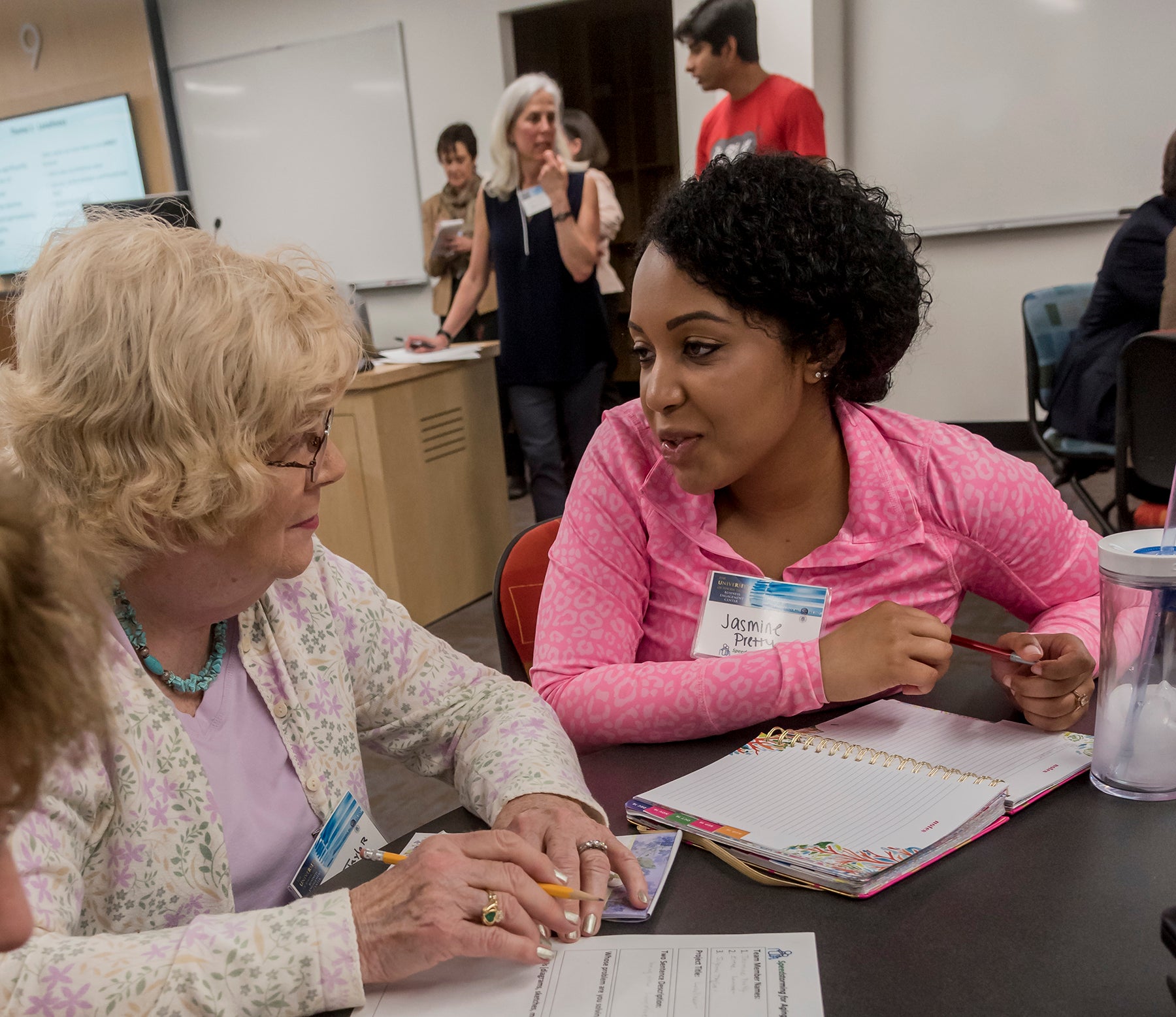KINGSTON, R.I., May 10, 2017 — What do you get when you bring together people of all ages, backgrounds and expertise, ask them to solve vexing societal challenges, impose a time limit and toss in a dash of musical chairs for good measure?
You get something called Speedstorming, and with it, dozens of innovative ideas. The University of Rhode Island put this dynamic technique into practice during Speedstorming for Aging in May on the Kingston campus.
Speedstorming, which combines elements of brainstorming and speed dating, was developed at the University of California, Berkeley, and has caught on across the country for its fast, furious and freestyle approach to innovation that crosses academic disciplines and societal boundaries.
The URI event itself was a product of brainstorming among Assistant Professor Kunal Mankodiya of the College of Engineering, Deedee Chatham of the URI Business Engagement Center and Catherine Taylor of the George and Anne Ryan Institute for Neuroscience. They decided to try Speedstorming to address a complex societal issue: healthy aging. The event drew more than 40 participants from across the University and the community.
Madi Housel of Danville, N.J., a junior film and English major, said the subject was outside her expertise, but that is part of what made it interesting. “I have met a lot of really cool people, all different ages and with many different backgrounds. I expected to be talked at, but it’s not like that at all,” she said of the collaborative experience.
Overall, 42 unique teams of three people each were given 15 minutes to develop an idea to address a theme of aging before they had to switch seats based on the color of their chairs, join new teammates and tackle another theme. They did this three times.
The teams addressed loneliness, lack of physical activity and a discrimination. Taylor helped spark discussion by putting each theme into context, from the links of loneliness to disease to ageism as the last socially acceptable “ism.”
Each team had 3 minutes for introductions, 7 for discussion and 5 to document the idea, identify stakeholders and include a diagram, if needed. Mankodiya used a stopwatch to keep time. He and Chatham counted down from 10, then collected the ideas.
While some felt constrained by the time limit, others were empowered. “I think 15 minutes is good. You are not pressured to make it perfect,” said Melanie Brasher, assistant professor of sociology and anthropology, who was part of the winning team addressing physical activity.
Animated conversation filled an Active Learning Classroom at the Carothers Library and Learning Commons as ideas were generated. A panel of judges immediately began evaluating them for originality, feasibility and social impact. The event wrapped up with awards for the top idea in each theme.
The winning idea to combat loneliness proposed an intergenerational living facility, where young and old lead meaningful lives that are intertwined through social events and the shared pursuit of purposeful activities.
Puppy love was the winning solution to increase physical activity. The team proposed engaging older people to walk dogs whose owners are at work. Dogs might be brought to senior centers to make logistics easer.
To combat ageism, the winning team suggested older people identify three objectives to achieve: something to do for oneself, something to do for family and something to do for the community. Individuals would write down their goals and share them with friends and family, who become invested in their success.
The organizers hope to build on URI’s Speedstorming momentum with a statewide Aging Hackathon in October. Information about this and other upcoming entrepreneurial events can be found at URI.edu/bec.
Speedstorming for Aging judges were: Michael Katz, Ph.D., URI Research Foundation; Dr. Johnny Luo, Doctor’s Choice; Katherine Flynn, URI Business Engagement Center; Nancy Forster Holt, Ph.D., URI College of Business Administration; and Carol Malysz, MedMates.

